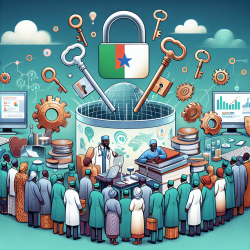Introduction
In the ever-evolving landscape of youth mental health services, understanding the dynamics of successful system implementations is crucial. The study titled "30 years of youth system of care lessons learned – a qualitative study of Hawai'i’s partnership with the Substance Abuse and Mental Health Services Administration" offers a treasure trove of insights that can be pivotal for practitioners in online therapy services like those provided by TinyEYE. By examining the lessons learned from Hawai'i's System of Care (SOC) approach, practitioners can enhance their skills and improve outcomes for children.
Key Findings from the Study
The study employed a two-phase qualitative approach, analyzing project reports and conducting interviews with system leaders. Two primary themes emerged: interagency collaboration and youth and family voice, both essential for long-term success in mental health service delivery.
Interagency Collaboration
Interagency collaboration was identified as a cornerstone for effective SOC implementation. The study highlighted the importance of building and maintaining strong relationships between different child-serving agencies, such as education, welfare, and mental health services. For online therapy providers, fostering similar collaborations can enhance service delivery and ensure comprehensive care for youth.
Youth and Family Voice
Another significant theme was the integration of youth and family voices in the decision-making process. The study emphasized the need for these voices to be heard not just at the advisory level but also in treatment planning and execution. Online therapy platforms can benefit by actively involving families in therapy sessions and decision-making processes, thereby tailoring services to meet the unique needs of each child.
Process Themes: Connection and Continuity
Beyond content themes, the study also identified two process themes: connection and continuity. These themes underscore the importance of creating a cohesive system that connects various stakeholders and ensures continuous service delivery.
Connection
Building connections between youth, their families, communities, and service providers is vital. For online therapy services, this means creating platforms that facilitate communication and collaboration among all parties involved in a child's care.
Continuity
Continuity in service provision is crucial for achieving long-term positive outcomes. This involves maintaining consistent therapeutic approaches and ensuring that funding and resources are sustained over time. Online therapy providers should strive to offer continuous support and follow-up services to maintain therapeutic gains.
Recommendations for Practitioners
Practitioners can enhance their service delivery by adopting the following strategies based on the study's findings:
- Foster Interagency Collaboration: Build partnerships with local schools, healthcare providers, and community organizations to create a supportive network for youth.
- Incorporate Youth and Family Voice: Actively involve families in therapy sessions and treatment planning to ensure services are tailored to individual needs.
- Ensure Connection and Continuity: Develop systems that facilitate communication and collaboration among stakeholders and provide continuous support to clients.
Conclusion
By implementing the lessons learned from Hawai'i's SOC approach, online therapy providers can significantly enhance their service delivery and improve outcomes for children. Practitioners are encouraged to delve deeper into the study and explore further research opportunities to continue advancing the field of youth mental health services.
To read the original research paper, please follow this link: 30 years of youth system of care lessons learned – a qualitative study of Hawai'i’s partnership with the Substance Abuse and Mental Health Services Administration.










